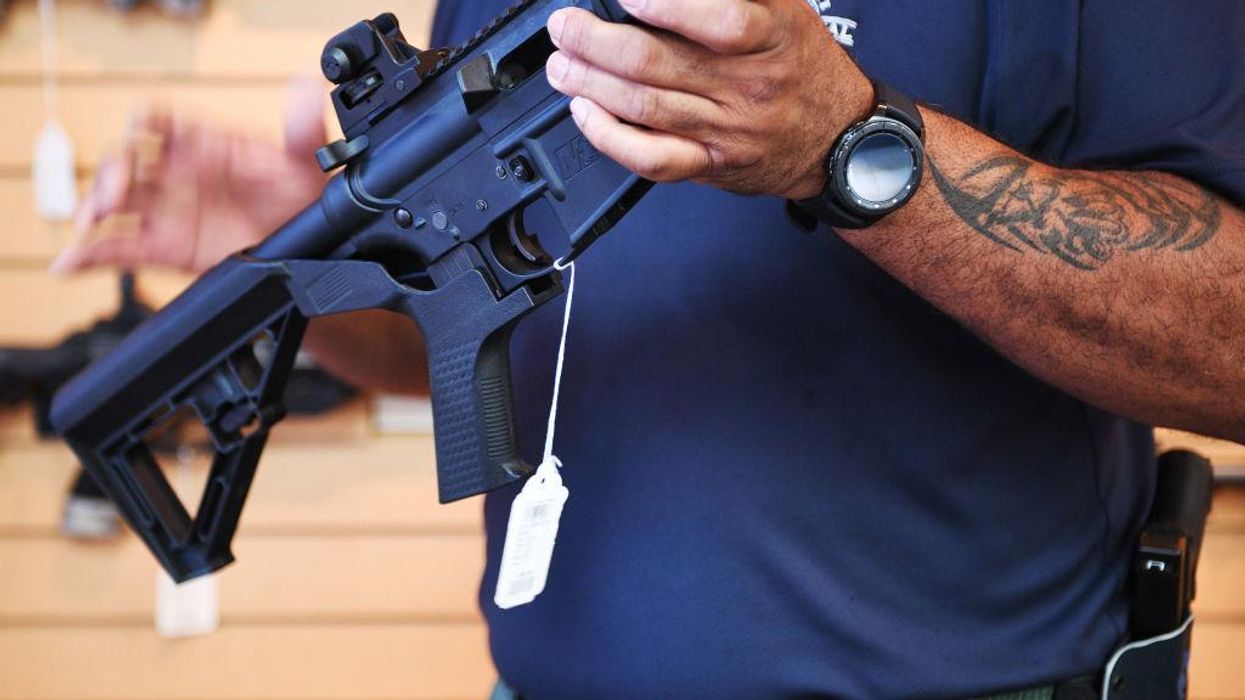
JIM WATSON/AFP via Getty Images

The U.S. Supreme Court on Monday declined to take up a challenge to the Trump-era ban on bump stocks, a gun accessory that allows semi-automatic firearms to shoot more rapidly.
The decision comes after a federal appeals court in August upheld the bump stock ban, which was enacted by the Trump administration in 2018 in response to the 2017 Las Vegas massacre. Then-president Donald Trump vowed to ban bump stocks after it was reported that the gunman used the rifle accessory in his deadly rampage that killed 60 people and injured more than 500 others at a music festival on the Vegas strip.
The Trump administration rule classifies guns equipped with bump stocks as machine guns, which are prohibited by the National Firearms Act and the Gun Control Act. A Utah gun rights advocate and the pro-Second Amendment group Gun Owners of America brought separate challenges to the law, which the Supreme Court declined to hear. The high court did not issue comment on its decision.
Gun Owners of America slammed the court's decision in a statement.
"This decision sets a horrible and dangerous precedent, one that will allow the ATF to further arbitrarily regulate various firearms. This very same precedent is already being abused by Joe Biden to ban millions of lawfully purchased pistols even without an ACT of Congress!" the group said.
"This just underscores the importance of We the People holding our elected officials accountable and reminds us why we can’t simply rely on politicized judges with lifetime appointments to restore constitutional government," added Erich Pratt, senior vice president of Gun Owners of America.
\u201cThis just underscores the importance of We the People holding our elected officials accountable and reminds us why we can\u2019t simply rely on politicized judges with lifetime appointments to restore constitutional government.\u201d— Erich Pratt (@Erich Pratt) 1664809625
The gun rights groups argued in court that bump stocks do not make firearms machine guns because of differences in how the trigger and barrel operate. But the U.S. Court of Appeals for the D.C. Circuit rejected that argument.
"By this logic, we would no longer characterize even the prototypical machine gun as a 'machine gun,' given the extent of rearward pressure on the trigger required to operate it," Circuit Judge Robert Wilkins wrote. "That cannot be right."
Before Trump directed that bump stocks be banned, the Bureau of Alcohol, Tobacco, Firearms and Explosives had considered bump stocks and in 2010, under President Barack Obama, found they should not be classified as "machine guns."
Gun rights advocates have called the ban illogical and argued the government's redefinition of bump stocks will lead to more regulations on firearms.
“Because virtually all semiautomatic weapons can be bump fired, and because that technique can be aided by myriad common household products or clothing items, ATF’s definition is necessarily overbroad and would eliminate statutory distinctions between less-regulated semiautomatic rifles and handguns, and more-regulated machineguns,” the Firearms Policy Coalition argued in a brief to the Fifth Circuit Court of Appeals.
“Bump firing, whether aided by a bump stock, a rubber band, or merely a well-controlled finger, is not shooting automatically and the ease with which any given weapon can be bump fired does not turn semiautomatic firearms into heavily regulated machineguns,” the group said.